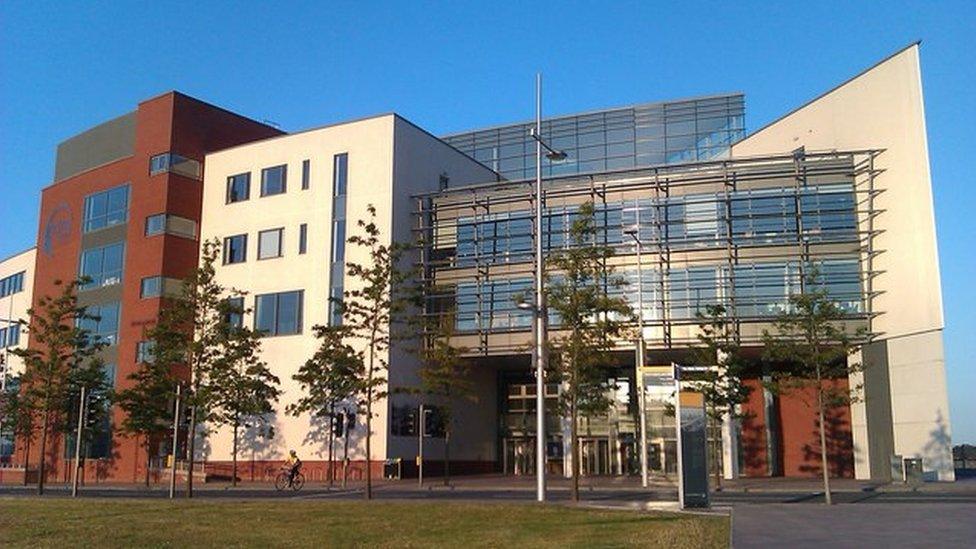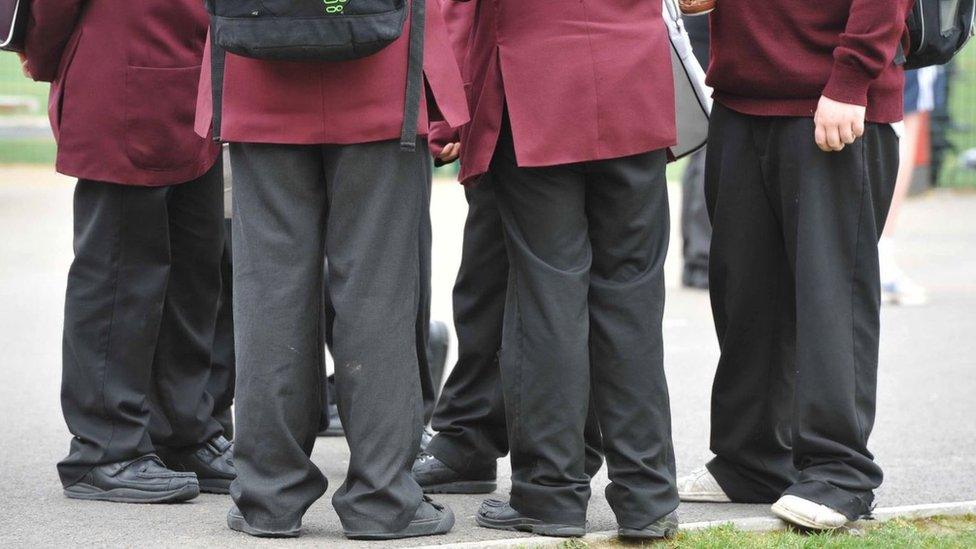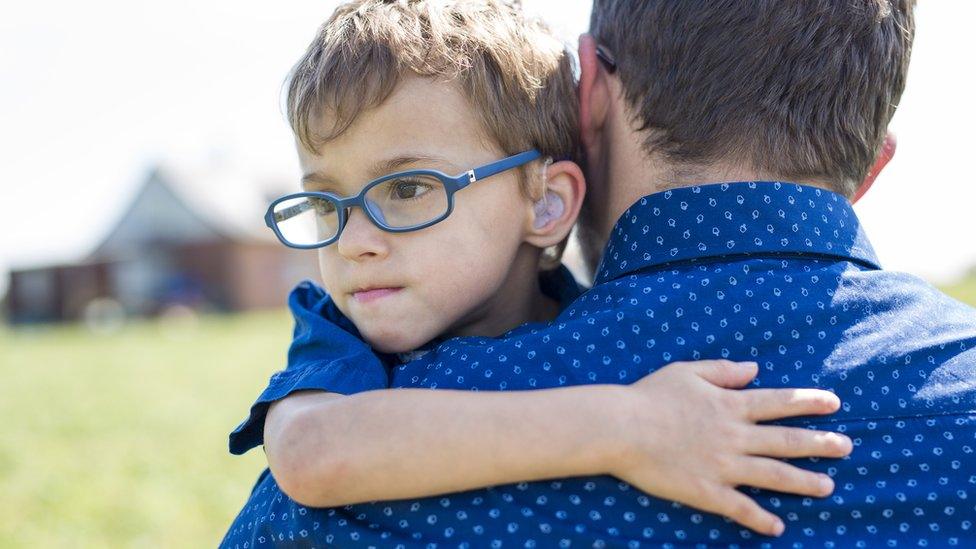Belfast Met: Young people with special needs to miss out on place
- Published

Belfast Met told prospective students they would be chosen through a "random selection process"
About 100 young people with special educational needs are set to miss out on a further education place in Belfast this year.
Belfast Met said it had only 66 places for 166 people who want to study at its Centre for Supported Learning.
The centre offers courses in employability and independence to young people with moderate and severe learning difficulties.
Enrolment cannot take place as normal due to Covid-19.
Belfast Met told prospective students they would be chosen through a "random selection process".
"I appreciate this is not ideal, however, it is impartial and we will ensure that the process is conducted fairly without any preference," they said in a letter to applicants, their parents and guardians.
Prospective students are to be told on Friday 29 May if they have a place on courses beginning this September.
'Fair and impartial'
The Centre for Supported Learning educates young people with special educational needs (SEN) who are making the transition between school and work.
It takes pupils from a number of special schools and courses include placements with employers.

The National Autistic Society says there is less provision and choice for SEN children when they leave school
In a statement to BBC News NI, Belfast Met said the education offered by the centre had been rated as outstanding and demand for places was high.
"In non Covid-19 times, applicants who meet the entry criteria and are assessed as suitable for a programme, are asked to enrol at the college in person," they said.
"This year, due to the current lockdown and closure of college buildings, that could not be the case, so a selection of applicants, who meet the entry criteria, was identified as the only fair and impartial mechanism that we can apply in these circumstances."
"Belfast Met is fully committed to these valuable programmes and our students."
'Massively oversubscribed'
Belfast Met said there had been no reduction in places on the centre's courses due to the coronavirus pandemic.
But one mother of a girl who has applied to the centre told BBC News NI they did know what they would do if she did not get a place.
"My 16-year-old daughter with an autism spectrum diagnosis has already changed school four times since P1, only one of those through choice due to unsuitable provision," she said.
"This year, she must move a fifth time to post-16 college provision, because the special school she attends, like many, finishes at year 12.
"But now we find ourselves in the position, like many others - on top of the uncertainty posed by coronavirus and the final school year finishing in March - that the applications for the only college course available to my daughter have been massively oversubscribed.
"It's only heightened the fear and uncertainty for these young adults, who at this point in their lives have so few choices available to them to advance their essential life skills for independence."
'Increases disadvantage'
Pauline Leeson, chief executive of the umbrella body Children in Northern Ireland, said the lack of places at colleges for those young people meant their full potential remained to be realised.
"Put quite simply there isn't enough money in the system to ensure the needs of young people with SEN are met," she said.
"We would urge the executive to address this immediately and ensure that all those young people with SEN receive a place within their chosen college to ensure they reach their full potential."
Sharon McDaid, from the National Autistic Society, said the demand for places showed there was "insufficient provision".
"Young people who have special educational needs and disabilities requiring reasonable adjustments to be made are already at a disadvantage compared to non-disabled young people," she said.
"There is less provision for further education when they leave school and much less choice.
"This reduces opportunity and increases disadvantage.
"Also, the Education Authority has a legal duty to create Transition Plans for all young people who have statements of special educational need after they turn 14.
"These plans should focus on the young person's needs as they move on from school and compile information from family and all relevant education and health professionals."
She also said that the National Autistic Society offered a transition support service to support autistic young people and their families with the move from education to adult life.
Details of the service are available on the National Autistic Society's website.
- Published11 September 2019
